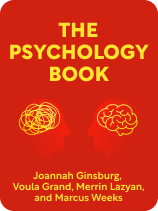

This article is an excerpt from the Shortform book guide to "The Psychology Book" by Catherine Collin, Nigel Benson, et al.. Shortform has the world's best summaries and analyses of books you should be reading.
Like this article? Sign up for a free trial here.
What is differential psychology? Where do IQ tests come from?
The field of differential psychology, which arose in the 20th century, examines differences in people’s personalities and intelligences. This has led to modern-day IQ and personality tests, trait theory, and research into personality disorders.
We’ll discuss some of the most prominent figures and concepts of differential psychology below.
Differences in Intelligence
What is differential psychology? In the late 1800s, German scientist Wilhelm Wundt developed this specific field of psychology by theorizing that all living creatures have a “mental life,” which includes intelligence. The authors of The Psychology Book explain that he formed the idea of an intelligence quotient (IQ), which led him and other scientists to seek to measure a creature’s intelligence.
Later, in the 1890s and early 1900s, French psychologist Alfred Binet observed that it was only possible to measure someone’s mental abilities in a specific time and context, and that these abilities could change over time, meaning intelligence was not fixed at any particular level. Binet and fellow scientist Théodore Simon devised a set of IQ tests called the Binet-Simon Scale to assess a child’s abilities based on the abilities of other children of the same age.
While the Binet-Simon Scale was originally intended to provide accommodations for children with disabilities, later scientists co-opted the test and used it instead to identify children who were considered genetically inferior (despite Binet’s insistence that intelligence was not hereditary or fixed) or to identify students who would be suited only for menial work as adults. Still, the Binet-Simon Scale continues to be used for most modern IQ tests.
| Flaws and Misuses of Intelligence Testing The idea that a person’s intelligence can be measured with a single IQ score is considered by some to be inherently flawed. Wundt acknowledged that any assessment of intelligence would vary depending on a person’s culture, and because he felt it was impossible to fully account for these differences, he believed there was no way to study intelligence in a laboratory setting—which, in experimental psychology, suggested it couldn’t be studied at all. Some modern critics of intelligence tests note that the tests’ validity seems to vary with the age of the subjects and assert that they’re poor predictors of academic and intellectual performance in people in early adulthood onward. They also suggest that classifying children in schools based on their intelligence creates a self-fulfilling prophecy in which “gifted” students are given more enriching and challenging experiences that aren’t offered to their peers, leading to an even wider achievement gap between the two groups. Also, particularly in the mid-20th century, some took the misuse of the Binet-Simon Scale to deadly levels. In 1924, Virginia legalized the forced sterilization of low-IQ individuals, and during the Holocaust, it became legal in Germany to murder children with low IQs or other disabilities. |
Decades later, when differential psychology emerged as its own distinct field, other scientists continued to refine ideas of intelligence. In the 1960s, American psychologist J.P. Guilford suggested that the Binet-Simon Scale was flawed because it couldn’t measure creativity, which he considered an essential part of intelligence and mental ability. He identified two types of thinking: convergent thinking, which encompasses things like memory and solving simple problems (and which could be measured by IQ tests), and divergent thinking, which refers to creative problem-solving. Guilford designed tests to assess divergent thinking.
| Creativity and Neurodivergence Guilford’s theories of creative intelligence and convergent and divergent thinking are especially relevant for people with neurodivergent conditions, whose difficulties with convergent thinking often lead to them being labeled as unintelligent. Guilford’s theories suggest that their intelligence is not necessarily lesser, but is instead just different. Neurodivergence refers to people whose brains naturally process information differently from the way most people—neurotypical people—do. Neurodivergent conditions include autism, ADHD, OCD, and many others. As the term suggests, neurodivergent people, and especially autistic people and people with ADHD, have been shown to be particularly adept at divergent thinking, despite often scoring lower on tests of convergent thinking. They tend to score higher on tests like those developed by Guilford. Some say thinking of intelligence as only convergent thinking leads to a cultural perception of neurodivergent people as intellectually inferior, which can lead to institutional bias, a denial of academic and employment opportunities, and other types of ableism and marginalization. |
Differences in Personality
Other scientists studying differential psychology focused on differences in personality, the authors explain. American psychologist Gordon Allport, one of the pioneering researchers in personality theory, identified 4,500 adjectives that could describe personality traits. Analyzing these further, he identified three different types of traits: cardinal traits, which are essential to a person and shape how they live their lives; common traits, which develop from influences from others and help shape our behavior; and secondary traits, which are dependent on context and can be changed. His work led other researchers to develop personality tests that heavily influenced the ones we still use today.
(Shortform note: Though highly influential, Allport’s theory has been criticized for a lack of supporting empirical evidence. Some critics say trait theory isn’t an accurate way of predicting behavior because Allport’s conclusions were based largely on observations and generalizations, and the traits he identified weren’t always consistent in the behavior of people who had them. Some critics also suggest that the theory’s focus on the present means it offers no explanation for personality development and how traits change over time and that it doesn’t account for the ways in which certain traits can be present in different degrees in some people.)

———End of Preview———
Like what you just read? Read the rest of the world's best book summary and analysis of Catherine Collin, Nigel Benson, et al.'s "The Psychology Book" at Shortform.
Here's what you'll find in our full The Psychology Book summary:
- Psychology 101 without the classrooms and dry lectures
- A look at the various fields of psychology and how they've changed
- Context, criticisms, and limitations of certain theories






